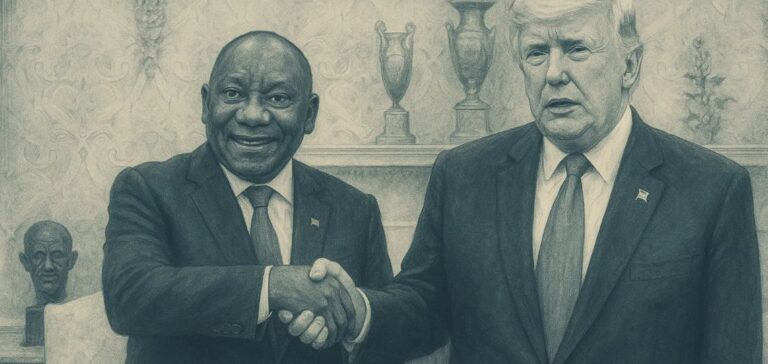South Africa has formally proposed to import between 75 and 100 million cubic metres of liquefied natural gas (LNG) per year from the United States over a ten-year period. The offer, published on the official website of the South African government news agency, was signed by Minister in the Presidency Khumbudzo Ntshavheni. The contract value is estimated at $900mn to $1.2bn per year, totalling between $9bn and $12bn over the proposed duration.
The proposal is part of a broader business partnership initiative between the two countries, presented during South African President Cyril Ramaphosa’s visit to the White House on May 21. During the meeting, discussions focused on bilateral trade relations, as Washington has recently cut aid to Pretoria and imposed diplomatic restrictions.
Automotive and metal export quotas included in the plan
The submitted document specifies that South Africa also proposes an annual duty-free quota for the export of 40,000 vehicles to the United States. This would be complemented by preferential access for South African automotive components intended for production within the US. These measures aim to support the manufacturing sectors of both countries under a framework of mutual cooperation.
The proposal also includes annual export quotas of 385 million kilograms of steel and 132 million kilograms of aluminium from South Africa, which would be eligible for tariff exemption. If approved, these volumes would provide strategic access to the North American market for South Africa’s basic industries.
Energy goals and technology cooperation
In her statement, Khumbudzo Ntshavheni said that South Africa would work with the United States to explore technical cooperation opportunities, including hydraulic fracturing (fracking). This component aims to strengthen domestic capabilities in gas production, at a time when the country seeks to diversify its energy supply.
The energy proposal forms part of a broader set of economic negotiations Pretoria hopes to finalise in order to stimulate growth and rebalance its relationship with the United States. It comes at a time when the South African government is looking to offset the loss of trade benefits through long-term commitments with international partners.






















